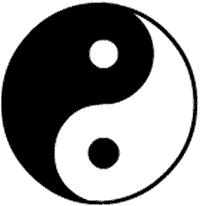 Most of us westerners have a strong bias towards linear thinking. For instance, we instictively believe that you get more freedom the further 'away' you move from repression.
Most of us westerners have a strong bias towards linear thinking. For instance, we instictively believe that you get more freedom the further 'away' you move from repression.In practice though, complex systems such as human societies work within loops, where bad things can follow from too much of a good one. The Chinese, with their Yin and Yang had a more culturally salient notion of how this plays out.
This morning I read a couple of chapters of Robin Lane Fox's The Classical World in which he explained how the destabilising influence of excessive luxury and material competition amongst the aristocratic elites of Greece in the eighth century BC led to the rise of tyrants in many cities. These Hobbesian leviathans emerged almost naturally in a faction-ridden land.
Sparta was the exception. There a proto-collectivist society was established through harsh social engineering codified by the anonymous individuals that over time merged into the mythical lawmaker Lycurgus.
Lane Fox reckons that Sparta's austere alternative society − an army camp according to Aristotle − was a deliberate attempt to escape the luxury-tyrrany loop: peer group solidity and a drastic curb on personal luxuries aimed to smother the forces of social division at source.
Importantly though, across Greece the move towards more repressive rule had been accelerated by an important socio-technological change in Greek warfare: the Hoplite.

No comments:
Post a Comment